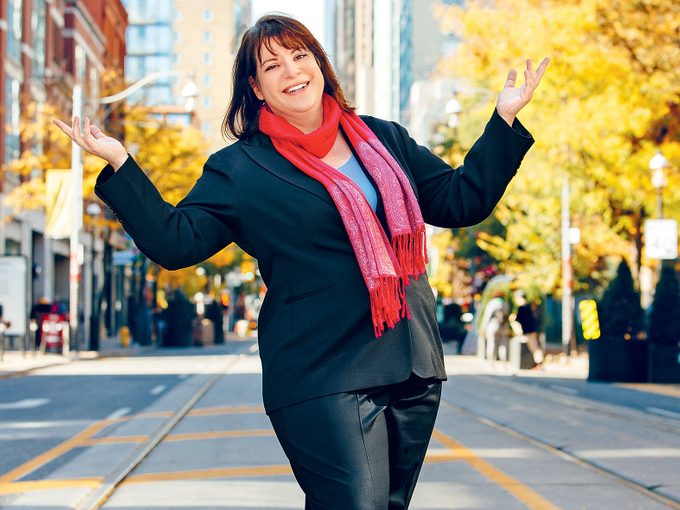How One Toronto Woman Is Helping Others Pull Themselves Out of Poverty
After experiencing homelessness, Lia Grimanis wanted to help women in need. A career coaching session gave her the idea to create Up With Women.

Above and beyond
In 2009, when Kate Smith* was in her final year at the University of Toronto, she seemed like any other high-achieving young woman. The then 21-year-old got good grades, participated in extracurricular activities and planned to go to law school. But below the surface, she was struggling.
At 17, Smith had been raped, but wasn’t taken seriously by a friend when she confessed what had happened. “It made me feel as though it was my fault and that I deserved to be mistreated,” she says. As coping day to day became more difficult, she began using drugs and alcohol.
Smith managed to graduate, but law school went on the back burner. Then she met a man who introduced her to more addictive drugs and started abusing her. Unable to hold down a job, she became homeless in 2014, and earned money as a sex worker. “I was living in hell for about a year,” she says. “I thought I was worth nothing.”
She eventually escaped her abuser and sought treatment for addiction, but her feelings of worthlessness persisted. Then, in 2016, she discovered Up With Women, a registered charity that offers executive coaching in Ontario, Quebec and British Columbia to women who are living in poverty and find themselves at risk for homelessness.
Founder Lia Grimanis (pictured above) herself experienced homelessness as a teen growing up in Toronto. She got the idea for Up With Women when she received career coaching while working for a tech company. Unlike counselling, where clients work through issues from their pasts, coaching is about the future. “A coaching conversation is all about what is your ideal life and what do you need to get there? It’s spending time focusing on where you want to go versus what you need to fix,” Grimanis explains.
She realized that women who really needed professional-development help from a coach could never actually afford it. “All of our clients are living below the poverty line, but some coaches are charging $350 to $600 an hour,” she says.
Up With Women matches participants with certified career coaches who provide one-on-one sessions twice a month for one year. The strategy is working: so far, the organization has helped more than 400 women. In the 2016–2017 cohort, roughly 70 per cent of them saw an increase in their income—and, on average, they were making $12,383 more per year than women still on the organization’s waiting list.
Grimanis says that, while it’s harder to measure confidence levels, she sees an increase there, too. And those difficult-to-quantify results can be the most powerful. Harmeet Toor, Up With Women’s director of operations and programs, was once a client herself. For Toor, one of the most impactful parts of her coaching experience was learning to shed the idea that she should limit her goals. “I call it the poverty mindset. ‘I deserve whatever everybody else in society has discarded because I am someone who has been discarded,’” she says. “But my coach didn’t spend time entertaining this idea.” Instead, she asked Toor, “What do you want?”
Five months into Toor’s coaching sessions, she’d found a place to live. By the eight-month mark, she’d landed a job at a doctor’s office. And now she’s figuring out how to help others—like Smith, who was finally able to start law school in 2018.
“I owe it to Up With Women for helping me get here,” Smith says. “Of course, I have the drive and the determination, but I wouldn’t be in law school if I didn’t have that coaching.”
Next, read about Brad Fremmerlid, an Albertan living with severe autism who started his own inspiring business.
*Name has been changed.



